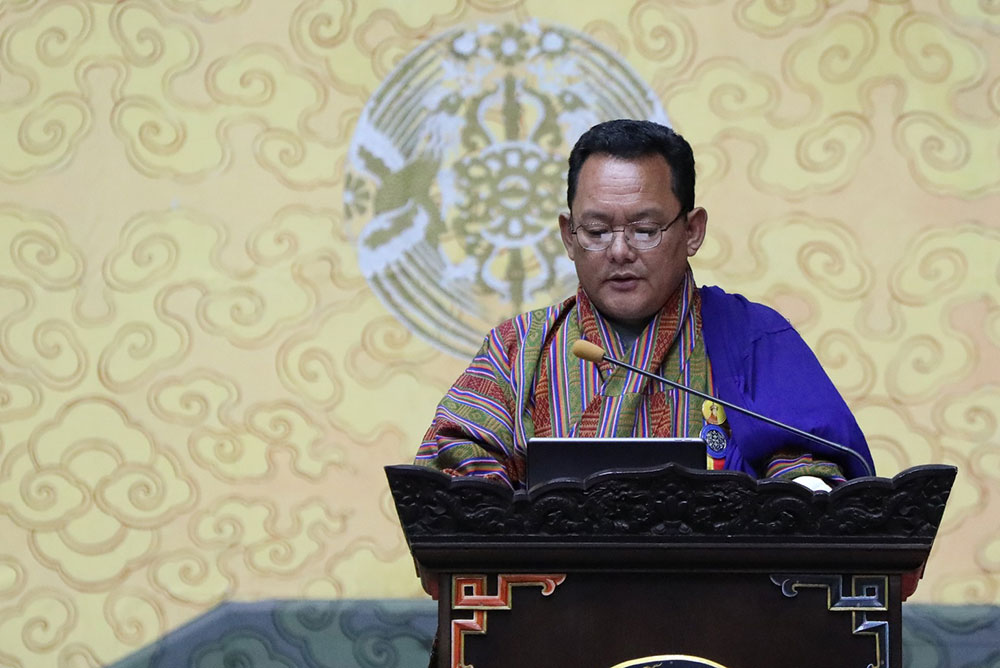YK Poudel
Bhutan’s irrigation schemes face significant challenges due to the absence of a standard operating procedure (SOP) among the various agencies responsible for planning, development, and monitoring.
This issue was unanimously acknowledged by members of the House during a presentation by the Public Accounts Committee (PAC) on the irrigation system yesterday.
Multiple agencies, including the Department of Agriculture (DoA), Department of Infrastructure and Development (DoID), Department of Water (DoW), National Environment Commission Secretariat (NECS), and Local Governments, are involved in providing safe drinking water and irrigation to the public.
Chairperson of the PAC, Gyambo Tshering, presented the report to the House. The committee conducted field visits, held consultations with relevant agencies, and examined reports to assess and understand the irrigation system’s efficiency and effectiveness.
The study aimed to determine the economy, efficiency, and effectiveness of developing and managing reliable, adequate, and sustainable irrigation systems.
The committee identified various inadequacies, including a lack of institutional structures to implement Integrated Water Resources Management (IWRM) and the non-implementation of the IWRM approach.
Water User Associations (WUAs) were also not instituted, and there was a lack of comprehensive information on water resources.
Members of Parliament raised concerns regarding the equal distribution of water among beneficiaries and the perceived lack of transparency in the implementation of water projects.
They questioned the effectiveness of government agencies and departments and emphasised the importance of working collaboratively under one set of guidelines and policies.
The report noted that while some farmers have followed rotation processes for irrigation, others have called for stronger policy implementation to ensure equitable water distribution.
Although Bhutan boasts rich surface water resources, with five major river basins, only 25 percent of the cultivated area benefits from assured irrigation, while the remaining 75 percent depends on rain for water requirements.
The Water Act of Bhutan 2011 emphasises decentralising the authority of water governance within river basins. While River Basin Committees (RBCs) have been established for Wangchhu River Basin, others, like Amochhu, Punatsangchhu, Mangdechhu, and Drangmechhu, still lack RBCs.
The establishment of Water Users’ Associations (WUAs) to manage water sources and supply services, as required by legislation, remains incomplete. This shortcoming affects planning and development for irrigation infrastructure at the national level.
The report also highlighted the lack of multi-disciplinary feasibility studies for irrigation projects, causing damages to existing schemes due to the expansion of roads and other developmental activities.
To address these issues, the committee proposed seven recommendations, including expediting the operationalisation of IWRM plans, reviewing and updating NIP 2012, and maintaining a comprehensive inventory of irrigation systems.
The recommendations will be adopted through a voting process as per procedure along with the deliberation on the Performance Audit Report on Preparedness for Cybersecurity and its recommendations in today’s Joint Sitting.


